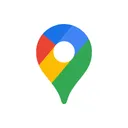Google Maps Scraper
Pricing
Pay per event
Go to Apify Store
Google Maps Scraper
Extract data from thousands of Google Maps locations and businesses, including reviews, reviewer details, images, contact info, including full name, email, and job title, opening hours, prices & more. Export data, run via API, schedule and monitor runs, or integrate with other tools.


